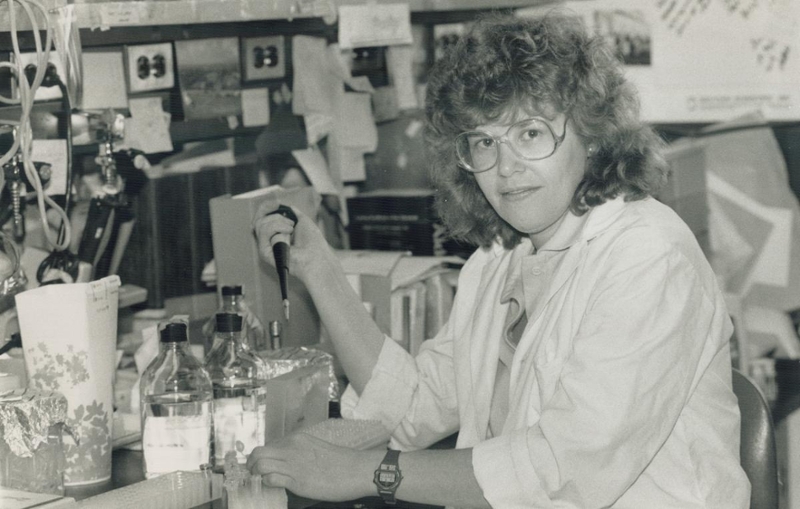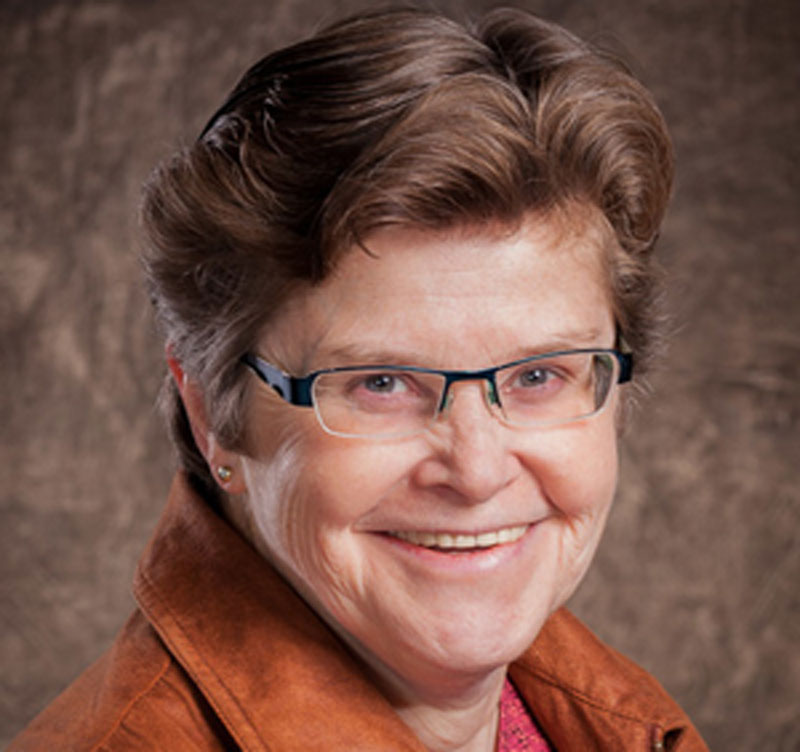The Canadian geneticist who isolated the cystic fibrosis gene looks back on the impact of her work
Author: UNB Alumni
Posted on Jun 26, 2023
Category: Inspiring Stories , Science , UNB Fredericton

When geneticist and senior scientist emeritus Dr. Johanna Rommens (BSc'80, PhD'86) was first featured in Alumni News magazine in 1996, she was riding the high of accomplishing breakthrough research that would change the fate of those diagnosed with cystic fibrosis (CF). It was a few years earlier, in 1989, that Dr. Rommens, as part of a small team at SickKids in Toronto, identified and cloned the CFTR gene, which when mutated, is responsible for causing CF.
The lead author of the gene-cloning paper, Dr. Rommens remembers her excitement that day. “It was a Friday in June 1989 and I was reasonably certain we had the right gene. I couldn’t sleep a wink that night. It was terribly exciting to think about how much of a difference this could make for patients and their families. It was a huge stride for patient survival and preventing serious outcomes.”
She would continue with ground-breaking research in her career, also discovering the gene responsible for Shwachman-Diamond syndrome, a rare genetic disorder that causes pancreatic and hematologic problems. “It’s a rare disease and I observed that clusters of genetic diseases have commonalities, and we can learn so much from one to the other. These related pathways allow us to think about therapeutics we can use in common.”
Before she became a global superstar in molecular genetics, Dr. Rommens studied at UNB to earn an undergraduate degree in biology and organic chemistry. She’d moved to Fredericton from her home in Melrose, New Brunswick, where her parents – immigrants from Holland – ran a dairy farm. “I always wanted to be a scientist, and my father encouraged it. I received a Beaverbrook Scholarship and that had a big influence on me, because a kid from rural New Brunswick doesn’t usually believe they can be a professor. It gave me the confidence that I could do it.”
During her graduate studies she focused on synthetic chemistry as well as molecular biology and received her PhD from UNB in 1986. “It was at this moment in time when DNA sequencing and new technology were becoming available, and I started dreaming of working at SickKids. I thought it was a pipedream.”
It wasn’t.
She was hired at the Hospital for Sick Kids that very year as a post-doc in the lab of Lap-Chee Tsui, a highly respected geneticist. Dr. Rommens was also made a professor at the University of Toronto.
“The past 30 years have really been the golden era of human genetics and I’ve been lucky enough to be a part of it. Families spend amongst the happiest or saddest days of their lives at SickKids, and this translates to us that have opportunity to work there. But to be in both the practical world of a hospital and the theoretical world of the university is wonderful. I explore abstract thinking but dwell in practical limitations.”
Dr. Rommens says she fell in love with human genetics because it's about people. “It’s a special kind of science – a human science about families and inheriting genes. I love being able to be in the hospital working on the people side of things.”
Over the years, Dr. Rommens says that ambitions got higher and the expectations to do more, quickly, grew. “It’s slow work and I hope we can keep moving faster, because we need to keep making big steps. The contributions of genetics have been enormous for aging and health, and we’ve seen lately how fast we sometimes need to move to respond to needs. There’s a lot of pressure, and public distrust in science is worrying. The expectations are that everything is either yes or no, but in reality, it’s a lot of gray.”
As she looks back over the decades, she’s as passionate as ever. “When I was young and ambitious, I didn’t dwell on grayness. As you get older, you realize it’s more complicated. But the advances made are amazing. We now study huge groups of people and are getting a good handle on health and wellness and preventing disease.”
Dr. Rommens is still at SickKids and although semi-retired, still involved in a couple of CF projects. “What else would I do? It’s hard to imagine not doing this work if I’m healthy and able.”
With the discoveries that she and colleagues around the world are making, she may very well be able for quite some time.